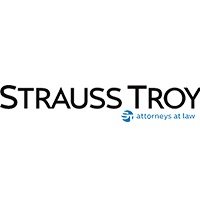Best Nonprofit & Charitable Organizations Lawyers in Covington
Share your needs with us, get contacted by law firms.
Free. Takes 2 min.
List of the best lawyers in Covington, United States
About Nonprofit & Charitable Organizations Law in Covington, United States
Nonprofit and charitable organizations play a vital role in communities across the United States, including Covington. These entities are established primarily for educational, religious, scientific, and other charitable purposes. They are distinct from businesses because they do not distribute profits to owners or shareholders but rather reinvest any surplus to further their mission. In Covington, the laws governing these organizations ensure they adhere to state and federal regulations, maintain transparency, and operate effectively in serving their intended cause.
Why You May Need a Lawyer
Individuals and organizations involved with nonprofits may require legal counsel for several reasons. Establishing a nonprofit involves complex processes including drafting articles of incorporation, bylaws, and applying for tax-exempt status. Legal experts can also guide regulatory compliance, assist with obtaining and maintaining tax exemptions, address employment law issues, aid in contract negotiations, and help navigate board governance issues. Having a lawyer ensures you adhere to both local and federal laws, thus safeguarding the organization’s objectives and resources.
Local Laws Overview
Covington follows the legal structure of Kentucky law regarding nonprofits, as well as federal guidelines outlined by the IRS for tax-exempt entities. Key considerations include ensuring governance practices comply with the Kentucky Nonprofit Corporation Act, maintaining good standing with the state by filing annual reports, and observing obligations under tax laws at both the state and federal level. Nonprofits must also adhere to local charitable solicitation laws that may require registration before fundraising activities.
Frequently Asked Questions
How do I start a nonprofit organization in Covington?
To start a nonprofit, you must choose a name, create and file articles of incorporation with the Kentucky Secretary of State, obtain an Employer Identification Number (EIN), and apply for tax-exempt status with the IRS.
What are the compliance requirements for nonprofits in Covington?
Nonprofits must comply with state and federal filing requirements, maintain accurate records for financial transactions, file annual reports with the Secretary of State, and ensure transparency in operations.
Are there special tax exemptions available for nonprofits in Covington?
Yes, nonprofits can apply for federal tax exemption under IRS 501(c)(3) and may be eligible for state tax exemptions in Kentucky, which requires certain additional applications and compliance.
Do all nonprofits need to register for fundraising?
Yes, nonprofits must generally register with the Kentucky Attorney General's Office prior to soliciting donations, unless they meet specific exemptions.
What are bylaws, and why are they important?
Bylaws are governing documents that outline the internal structure and procedures of a nonprofit, including board meeting protocols, election of directors, and membership rights. They are crucial for organizational governance and compliance.
How can I ensure my nonprofit is following employment laws?
Nonprofits must adhere to federal and state employment laws, including wage and hour regulations, anti-discrimination laws, and workers' compensation. Consulting with a legal expert is advised to ensure compliance.
What is the difference between a public charity and a private foundation?
Public charities typically receive funding from the general public or government, while private foundations are funded by a single source, such as a family or corporation. This distinction affects tax treatment and regulatory obligations.
How do nonprofit board responsibilities work?
Board members have fiduciary duties to act in the best interests of the nonprofit, ensuring resources are managed effectively and ethically while maintaining compliance with the law.
Can a nonprofit be involved in political activities?
Nonprofits classified under 501(c)(3) are prohibited from political campaigning but may engage in limited lobbying activities. Understanding what constitutes acceptable advocacy is important.
What happens if our nonprofit dissolves?
If a nonprofit dissolves, any remaining assets must be utilized for tax-exempt purposes and distributed according to state rules, typically to another 501(c)(3) organization.
Additional Resources
Several resources offer guidance related to nonprofit operations in Covington, including the Kentucky Nonprofit Network, Covington's local city government offices, and the IRS website for federal tax exemption guidance. These organizations can provide valuable insights and assist in both the establishment and management of compliant nonprofit organizations.
Next Steps
If you need legal assistance for a nonprofit in Covington, consider consulting an attorney specializing in nonprofit and charitable organizations law. Prepare a list of questions or issues related to your organization and schedule an initial consultation to discuss your needs. Research local law firms or legal aid services that offer expertise in the nonprofit sector to find the right support for your organization.
Lawzana helps you find the best lawyers and law firms in Covington through a curated and pre-screened list of qualified legal professionals. Our platform offers rankings and detailed profiles of attorneys and law firms, allowing you to compare based on practice areas, including Nonprofit & Charitable Organizations, experience, and client feedback.
Each profile includes a description of the firm's areas of practice, client reviews, team members and partners, year of establishment, spoken languages, office locations, contact information, social media presence, and any published articles or resources. Most firms on our platform speak English and are experienced in both local and international legal matters.
Get a quote from top-rated law firms in Covington, United States — quickly, securely, and without unnecessary hassle.
Disclaimer:
The information provided on this page is for general informational purposes only and does not constitute legal advice. While we strive to ensure the accuracy and relevance of the content, legal information may change over time, and interpretations of the law can vary. You should always consult with a qualified legal professional for advice specific to your situation.
We disclaim all liability for actions taken or not taken based on the content of this page. If you believe any information is incorrect or outdated, please contact us, and we will review and update it where appropriate.








